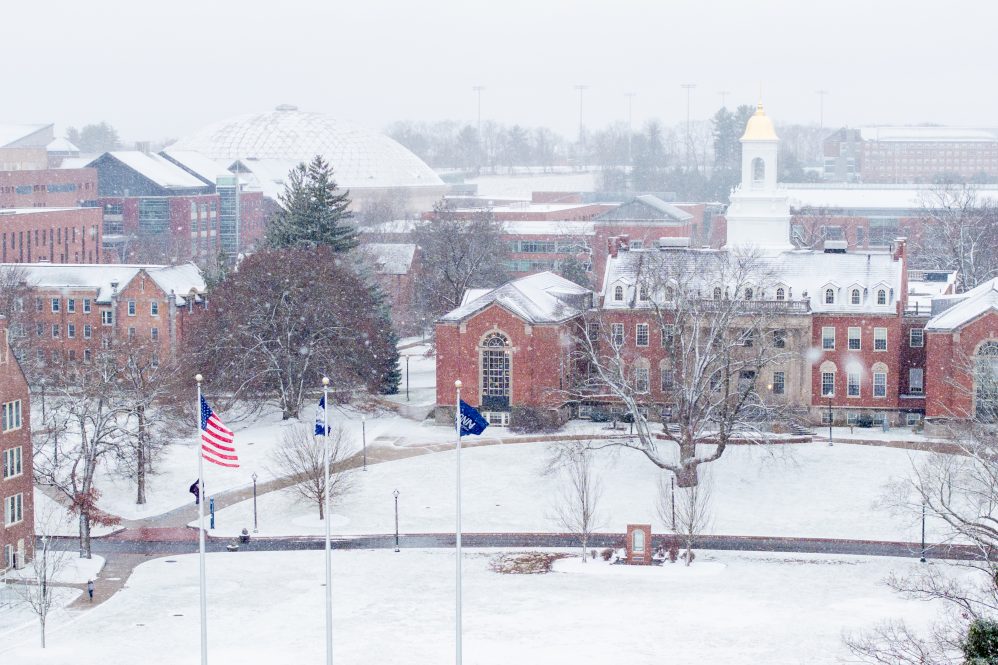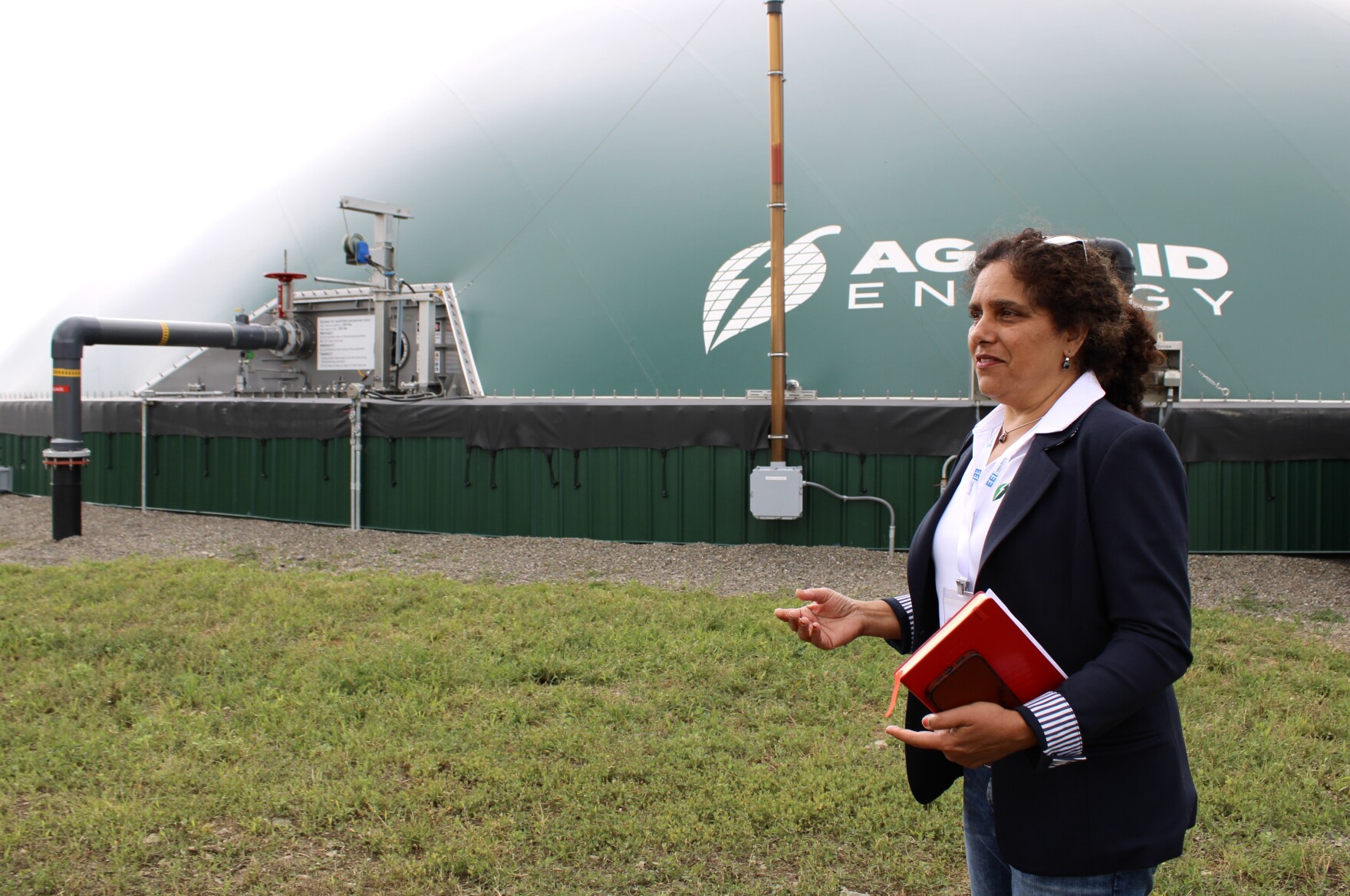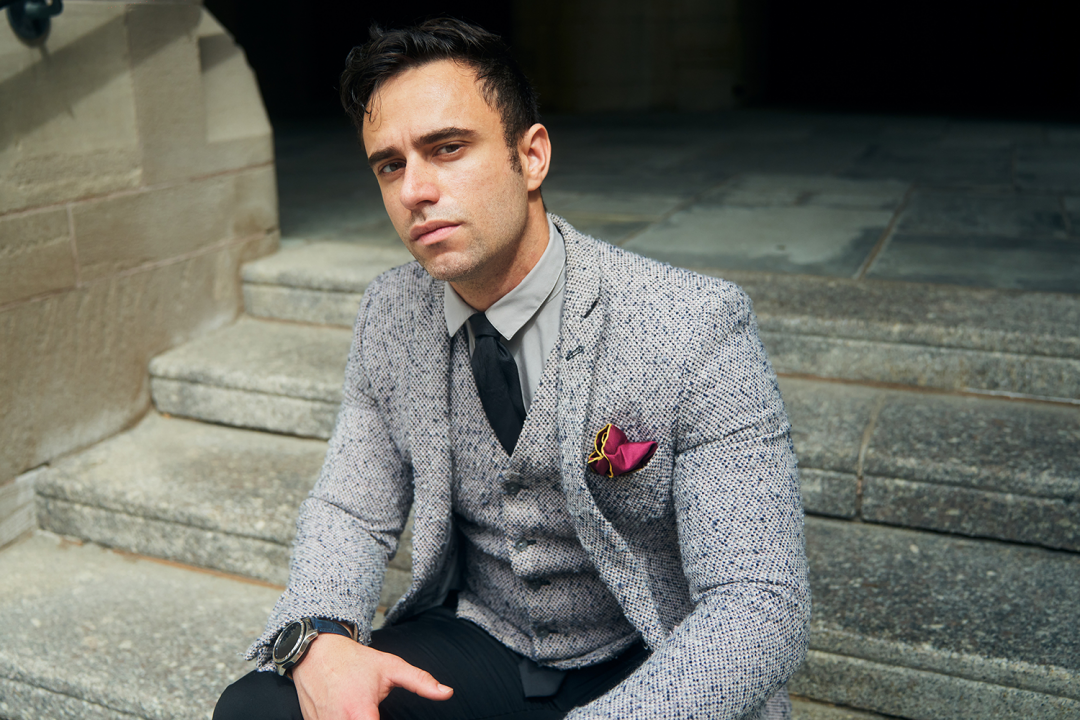UConn is embracing its tradition of Metanoia, entering the new semester with plans for thought-provoking events next week on how to listen deeply, build trust, and create pathways to civil discourse on divisive issues.
Professor Irshad Manji, founder and chief executive of the Moral Courage Network, will visit UConn Storrs for a series of teaching and training events on Feb. 5 and 6, including a keynote presentation that will be livestreamed for all UConn community members.
The organization seeks to unify people with the skills needed to communicate in a polarized world, which is among the areas of focus that prompted the University to launch its current Metanoia process.
Manji, who is a New York Times best-selling author, will introduce the UConn community to the five core skills of Moral Courage and teach participants how to use those skills to unify the University community.
Manji’s keynote presentation is planned for 7 p.m. on Wednesday, Feb. 5, in the Student Union Theater. A reception will be held after the keynote presentation to provide community members with more opportunities for discussion.
The event will then be followed with additional workshops on Thursday, Feb. 6, including a screening of the Oscar-shortlisted documentary “Mississippi Turning” and interactive sessions to practice the Moral Courage skills during difficult conversations.
Manji teaches with the Oxford Initiative for Global Ethics and Human Rights and was a prize-winning leadership professor at New York University for many years. Her latest book is “Don’t Label Me: How to Do Diversity Without Inflaming the Culture Wars.”
UConn observed its first Metanoia in 1970 and has convened more than a dozen in the years since then to examine issues of shared importance, often involving political or racial issues that have resulted in divisions on campus and throughout the nation.
This year’s Metanoia, which organizers announced in spring 2024, came out of a need for the UConn community to better foster an environment of equity, inclusion, and understanding when engaging in challenging conversations, organizers said.
Planning is currently underway for additional events and people are invited to suggest an event or program in keeping with the mission of creating pathways to productive and civil discourse.
Like other campuses nationwide, UConn has been home to a wide range of views on hotly disputed topics in recent months and years. Against that backdrop, the University Senate called for the Metanoia in spring 2024 with approval from President Radenka Maric and Provost Anne D’Alleva.
“This will be a time for the University to come together and delve deeply into important topics and concerns. It’s meant to be an intellectual spark for the entire university: for faculty, staff, and students,” Jennifer Lease Butts, one of the organizers, told the Board of Trustees in a presentation about the Metanoia.
Lease Butts, who is also director of the UConn Honors Program and is associate vice provost for enrichment programs, co-chairs the University’s Metanoia Committee with UConn President Emeritus Susan Herbst, who is also a professor of political science.
“The first Metanoia in 1970 was held during a period of great positive change in the United States, but it was also an era marked by violence, incivility, and fear,” Herbst said.
“UConn faculty and staff, who have always been outward-looking and intent on social justice, tackled those issues right here in Storrs, inspiring students – and each other – to discuss difficult issues as one community,” she added. “Let us carry on this tradition in 2025, another extraordinarily challenging year for American democracy and culture.”
The current Metanoia kicked off with a 2024 event, “Pathways to Productive Civil Discourse,” in which participants discussed ways to communicate across differences and listen with empathy, which will be underlying themes of events throughout the coming year.
The event was followed later in the day “UConn Strong: A Dialogue on Mental Health & Resilience,” a Democracy & Dialogues Initiative event hosted by the Gladstein Family Human Rights Institute, in which students led a discussion on the escalating importance of mental health on UConn’s campuses.
The previous events epitomized the kind of thoughtful give-and-take that the yearlong Metanoia seeks to foster and set the tone for planning future events to take place, and Metanoia committee members say they look forward to continuing this conversation with the UConn community this semester.



